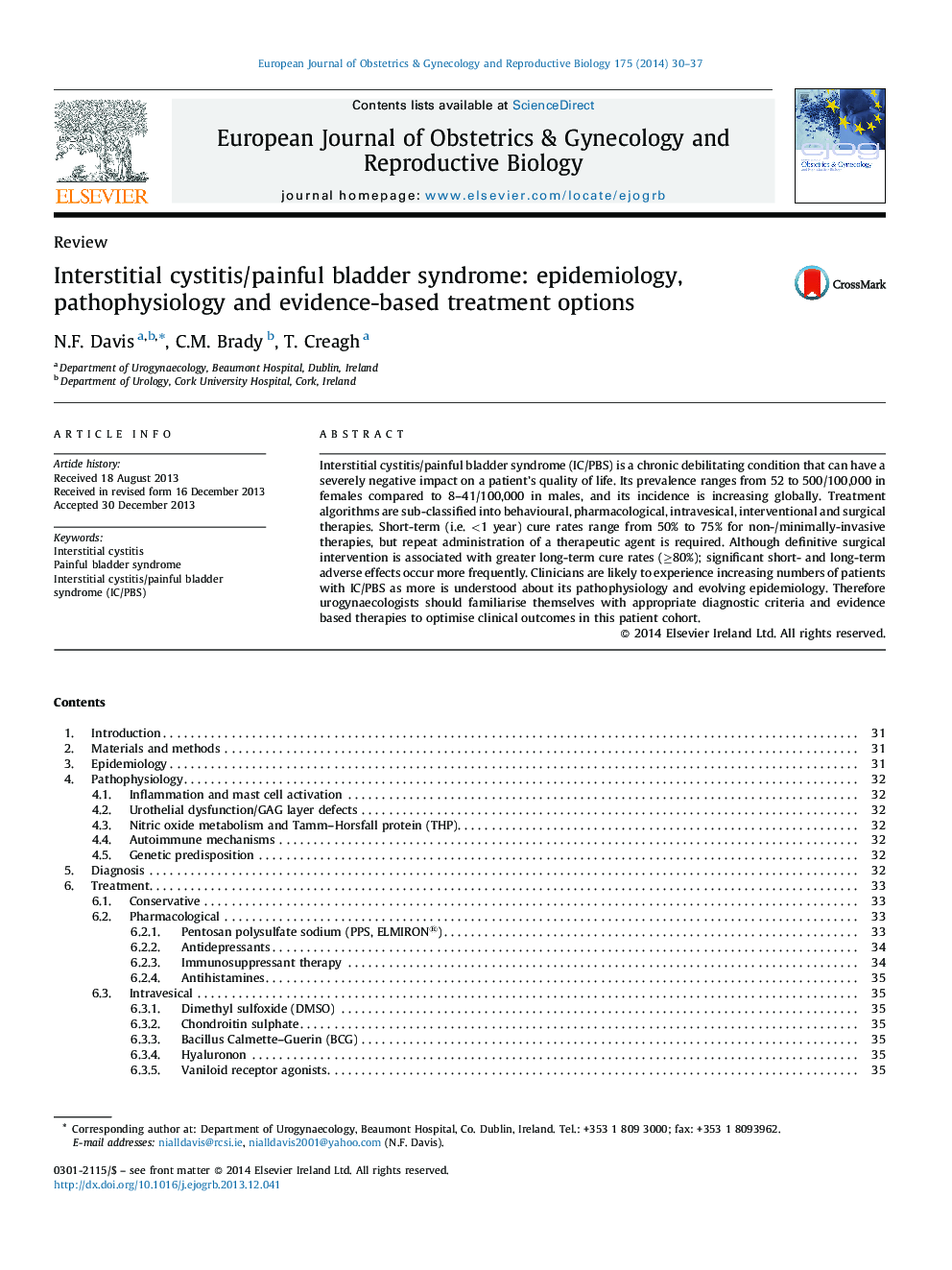| Article ID | Journal | Published Year | Pages | File Type |
|---|---|---|---|---|
| 6173935 | European Journal of Obstetrics & Gynecology and Reproductive Biology | 2014 | 8 Pages |
Interstitial cystitis/painful bladder syndrome (IC/PBS) is a chronic debilitating condition that can have a severely negative impact on a patient's quality of life. Its prevalence ranges from 52 to 500/100,000 in females compared to 8-41/100,000 in males, and its incidence is increasing globally. Treatment algorithms are sub-classified into behavioural, pharmacological, intravesical, interventional and surgical therapies. Short-term (i.e. <1 year) cure rates range from 50% to 75% for non-/minimally-invasive therapies, but repeat administration of a therapeutic agent is required. Although definitive surgical intervention is associated with greater long-term cure rates (â¥80%); significant short- and long-term adverse effects occur more frequently. Clinicians are likely to experience increasing numbers of patients with IC/PBS as more is understood about its pathophysiology and evolving epidemiology. Therefore urogynaecologists should familiarise themselves with appropriate diagnostic criteria and evidence based therapies to optimise clinical outcomes in this patient cohort.
